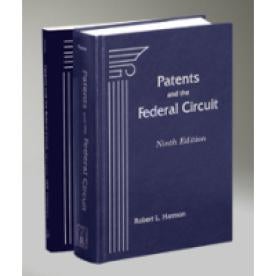Takeaway: If a party is attempting to modify the default protective order, it must show good cause for doing so, including the inclusion of heightened restrictions on who can view the information.
In its Decision, the Board granted Patent Owner’s Motion to Seal. Patent Owner’s Motion proposed sealing certain evidence in support of its Motion to Amend. It also proposed the entry of a protective order that differs from the default protective order by creating a special class of confidential information marked “Attorney’s Eyes Only” that would only be available to the opposing party’s outside counsel and experts. Petitioner did not contest the designation of information as confidential, but argued that it should be subject to the standard protections, not to the heightened “Attorney’s Eyes Only” protection.
The exhibits that Patent Owner submitted as “Attorney’s Eyes Only” contain sales data and financial data that Patent Owner contends would cause significant harm if disclosed to Petitioner’s in-house counsel and employees. Petitioner stated that its in-house counsel is not involved in competitive decision-making and could not harm Patent Owner by having this information. Additionally, Petitioner argued that in-house counsel must have access to this information in order to formulate the opposition to the Motion to Amend.
The Board stated that the record for an inter partes review must be made available to the public unless ordered otherwise for “good cause.” Therefore, the party requesting that the information be sealed must show that the information is truly confidential and that the confidentiality outweighs the strong public interest in having an open record. Additionally, to establish entitlement to heightened confidentiality restrictions, the Board must balance a party’s interest in insuring that its information is protected and the opposing party’s interest in obtaining access to the information by its in-house counsel. This requires an examination into the role the in-house counsel plays in the company’s business. The Board found that the parties provided little information about that role, therefore other factors must be considered.
The Board found there was no reason to doubt patent Owner’s assertion that the information is particularly sensitive in nature or Petitioner’s assertion that its in-house counsel does not engage in competitive decision-making. Patent Owner understands that these exhibits may be made public if relied upon in the final written decision. Further, the information is relied upon only to the extent it provides a factual basis for conclusions reached by Patent Owner’s expert, who can be cross-examined. Therefore, the Board found that Patent Owner’s interest in avoiding inadvertent disclosure of information outweighs Petitioner’s need to have its in-house counsel review it.
Greene’s Energy Group, LLC, Inc. v. Oil States Energy Services, LLC, IPR2014-00216
Paper 27: Decision on Patent Owner’s Motion to Seal
Dated: September 23, 2014
Patent: 6,179,053 B1
Written by: Scott E. Kamholz



 i
i


